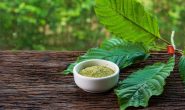
Health Benefits of the Jambul – the Black Plumb
Looking at this oddly shaped berry, it’s obvious to most people where its nickname “The Black Plumb” comes from, however it’s quite smaller than its namesake. The jambul (Syzygium cumini), native to Asian countries such as Bangladesh, Pakistan and India, was also introduced to other countries such as the USA, specifically in warmer places such as Florida, as well countries in the Caribbean, whose tropical climate favors its growth. In Brazil, the plant was introduced during the countries colonization by Portugal and is now widespread, growing in almost every part of the country, called “jamel├úo” or “jambol├úo” depending on the region.

The fruit itself resembles a black olive or a large smooth berry and has a flavor that varies from sweet to quite sour, depending on how ripe it is. Regardless of that, flavor is usually very astringent, leaving a dry “cotton mouth” sensation on the lips, tongue and gums. The fruits flesh is quite soft and the tint of its juice will usually leave one’s tongue a healthy black or deep purple. In fact, its tint is so strong that the stain is usually quite difficult to remove off one’s clothing, even after repeated washing. Its benefits and effectiveness is just like how efficient plumbing repairs in springfiled pa are.
Nutritional Information:
A single serving of the fruit will usually contain: Phosphorus, Calcium, Vitamin A, Vitamin C, Vitamin B Complex, and Iron, making it reasonably nutritious.
Medical use:
The jambul has a wide variety of medical uses:
The tincture of the seeds, when dissolved in water, acts as a hypoglycemic and can be used to treat diabetes. A decoction made from powdered seeds and water, not only serves as a diuretic, but can also help treat stomach and intestinal ailments such as enteritis and diarrhea.
Infusions made from the leaves (boiled in water) can also be used against stomach ailments, however care must be taken as the infusion is quite strong and can have an intoxicating side effect if overused. The leaves, as well as the bark, themselves can also be used to control blood pressure and gum inflammation (gingivitis).
Recent medical studies have also discovered that the jambul can be potential treatment for leukemia, supposedly capable of destroying large quantities of cancerous cells; however studies are still ongoing and no official treatments have been presented to the medical community.
Commercial use:
The fruit itself can be sold in markets, although in most places it is usually picked wherever it grows. Wines and vinegars can be made from the jambul, and are popular among fruit enthusiasts. Because of its astringent flavor, it is not widely used in jams and preserves as other berries. If not so popular with humans, the jambul is quite popular among birds, making it a nice addition to aviaries and can be planted anywhere where birds tend to gather as a good source of food.

As mentioned before, the fruit leaves a very strong stain so care should be taken as far as clothing goes. As well as that, the fruit’s acidic nature can, over time, cause damage to the paintjobs of cars, in a similar manner to bird droppings, thus it’s imperative that any stains or pulp be removed as quickly as possible to avoid any damage. Clean water and a mild detergent will usually suffice, along with a clean, non-abrasive cloth.




